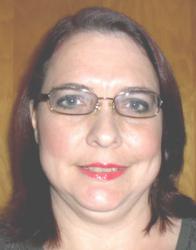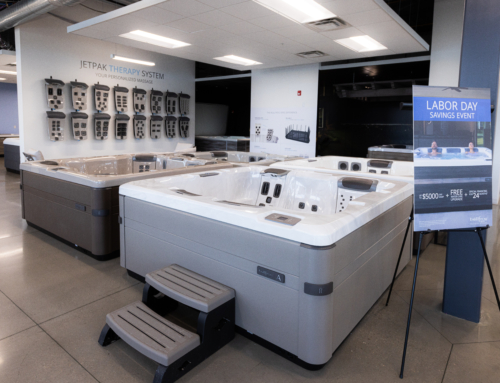You may have heard the recent buzz around the APSP Board’s approval to invest $1.3 million into education and training to address the industry’s issue of getting and retaining qualified workers. It just goes to show that sometimes you have to spend money to make money.
Many employers, especially those in retail sales, are hesitant to invest in professional development activities for their salespeople. Why? Because the employee turnover rate in retail sales tends to be higher than in other sales professions. What does this have to do with spending and making money? Just this: It’s much more economical to spend a few dollars increasing the knowledge and skills of existing salespeople than it is to hire and train new ones.
Understanding the Benefits
The Businessdictionary.com defines professional development as the “process of improving and increasing capabilities of staff through access to education and training opportunities in the workplace, through outside organization, or through watching others perform the job.” There are five important benefits of investing in professional development for your salespeople:
- It keeps your sales staff’s knowledge and skills relevant and up-to-date.
- Your staff’s confidence in their abilities increases in proportion to the knowledge gained.
- It helps keep your salespeople interested and interesting.
- Staff becomes more open to new strategies, knowledge, possibilities and skill areas.
- It shows they are valued because you’re “willing to help them reach their full potential.”
A recent study also found that “57% of workers ranked opportunities to learn and grow as one of the most important aspects of workplace culture.” Beyond this, the study indicates that professional development can reduce workplace stress: What are the top-ranking stressors? 52% of participants cite “the pressure to master new skills quickly to keep up with changing job responsibilities” and 42% cite “feeling under-skilled for the job.”
57% of workers ranked opportunities to learn and grow as one of the most important aspects of workplace culture.
The same study reports 48% of employees believe that one of the best things companies can do to fight workplace stress is invest in more professional development. In fact, when it comes to relieving job stress, “56% opt for more professional development [and] 50% choose more diverse skills training.” This is a win-win for employers and employees as less stress leads to healthier, happier employees. And happy employees are productive employees.
Creating a Professional Development Plan (PDP)
One of the best ways to make ongoing learning an integral part of your sales strategy is to create a PDP for each salesperson. It doesn’t have to be complicated.
In fact, Kirk Jenkins at Pool and Spa Center simply requires that each of his salespeople be involved in a professional organization. Jenkins attends a weekly breakfast with other business owners in the community, but he prefers that his sales staff participate in the Givers Gain program through BNI (Business Networking International). The goal is for them to connect with other professionals and participate in networking groups where they can share industry related skills and knowledge.
For others, the PDP might require earning a specified number of Continuing Education Credits through online courses, industry sponsored webinars, or on-site seminars and conferences. The key is to have multiple types of training available for your salespeople to choose from.
Self-Service Training in “Snackable” Sizes
According to Aberdeen “Best-in-Class companies are 76% more likely (37% vs. 21%) than All Others to deliver learning in different ways.” For these companies, the focus will be on traditional tactics like mentoring, eLearning, and in-class professional development opportunities along with the implementation of “newer, up-and-coming resources—micro learning, mobile learning, gamification, and more.” Of these, micro learning is the wave of the future.
Perhaps the best part about micro learning is that salespeople can access the training on their mobile devices and increase their knowledge and skills practically anywhere, anytime.
Aberdeen defines micro learning as “a method of learning that delivers content to employees in short, very specific bursts. Micro learning activities are usually completed in less than four minutes, making them digestible and manageable.” Delivered in short snippets to mobile devices, the idea is to “enable employees to access the necessary content on their own, as opposed to being pushed by managers or the L&D team to use such a resource.”
Perhaps the best part about micro learning is that salespeople can access the training on their mobile devices and increase their knowledge and skills practically anywhere, anytime.
Ideally, this micro learning technique allows employees to:
- Quickly identify problem(s)
- Process what possible resolutions might be available
- Learn how to resolve the challenge(s) at hand
Micro learning is a way for employees to re-learn specific concepts and information in a very short time so they can resolve specific, immediate challenges; whereas, macro learning takes place when employees are taught entirely new concepts. Micro reinforces previously learned concepts and macro teaches new ones. Aberdeen cites three areas to focus on when measuring the effectiveness of micro learning:
- Learning effectiveness: transfer of knowledge gained or procedures mastered back to the job
- Learning gain: did the employee demonstrate effective understanding of the learning content?
- ROI of learning event or activity: how did it impact the business?
Polls and surveys of employees are a preferred method for measuring the efficacy of learning efforts. According to the study, “top performers are 15% more likely…than All Others to use employee surveys” to do this. Limit each poll/survey to two or three questions on a weekly or monthly basis and ask things like “how do you feel about current learning resources,” “what works,” and “what doesn’t work.” Then use that feedback to fine tune the available training resources.
Keep in mind you’re more likely to keep employees year after year when you measure learning effectiveness.
Sources of Professional Development
Spa industry specific and retail trade organizations are the best place to start looking for professional development activities for your salespeople. Here are some of the best organizations offering sales-specific ongoing education opportunities:
Association of Pool & Spa Professionals
APSP University offers virtual classes with Continuing Education Units, and includes these course titles:
- Not My Type—Working With Difficult People
- Retail Boot Camp
- Retail Sales Associates Program
Small Business Administration
The SBA provides a number of courses, including these titles and many others:
- Customer Service
- Understanding Your Customer
National Retail Federation
NRF has a wealth of professional development opportunities in their Rise Up program for retail salespeople. The courses offered within these categories are designed for both entry-level retail employees and for first-time job seekers. Training certification is available in the following categories:
- Retail Industry Fundamentals
- Customer Service and Sales
- Advanced Customer Service and Sales
Retail Sales Academy
This Academy is an eLearning system for sales training that is available on computers, tablets, and phones. They offer a free trial so you can see exactly what you get for your money in advance, and they have a 30-day money-back guarantee that returns 100% of the purchase price if it turns out the training isn’t for you. The program is offered in three phases:
- Professional Certification
- Mastery and Application
- Ongoing Professional Development
Sales and Marketing Management
Free professional development webinars conducted by sales and marketing experts. They archive each of their webinars so you can go back and view past sessions. Examples of past programs include:
- Selling to Value: Uncovering Needs Beyond What the Customer Sees (1 hour)
- Why Closing the Deal Isn’t Enough: Avoiding the Fatal Miscalculation (1 hour)
- Want Better Sales Onboarding? Do It Differently! (1 hour)
- Emotional Intelligence for Sales Success (1 hour)
- 3 Science-Based Selling Strategies That Will Improve Sales Results (1 hour)
Dale Carnegie
Dale Carnegie training has been around since 1912, and while it’s more costly than other professional development activities, it offers training that has proven to be effective. Carnegie’s Sales Effectiveness Training program offers these and other course options:
- Cross and Up Selling
- Managing Customer Expectations
- Appeal to Buyer Motives to Close More Sales
- Winning with Relationship Selling
- How to Sell Like a Pro
The Friedman Group
This global organization has offered top shelf sales training for over 35 years. Programs are online and mobile, and $99/month covers all content and courses. It also includes a 20% discount on retail workshops for up to 25 users and allows for one administrator. Their Sales Associate Training Courses cover every aspect of retail sales including these topics:
- Your Role as a Sales Professional
- Adding On
- Building Value
- Handling Objections
- Closing the Sale
As you consider the benefits of sending your salespeople to professional development events, keep in mind this conversation between one retailer and Harry Friedman, founder of The Friedman Group:
Retailer: “What if I train my staff and they leave?”
Harry Friedman: “What if you don’t train them and they stay?”
Making it Stick
It isn’t enough to just take part in professional development activities, the knowledge gained from them must be applied on the sales floor. Jeff Goldberg, founder of Jeff Goldberg & Associates and 40-year veteran of sales, offers this advice: “Great training is useless without reinforcement, and you must make the reps practice, rehearse, and then make sure they’re actually doing it out in the real world.”
When you offer professional development opportunities that are varied and personally relevant, then follow up by assisting salespeople in implementing their new knowledge, those salespeople become more enthusiastic, more productive, and more likely to stay. Simply put, when you invest in the future of your employees, they are more likely to invest their future in you.









Leave A Comment